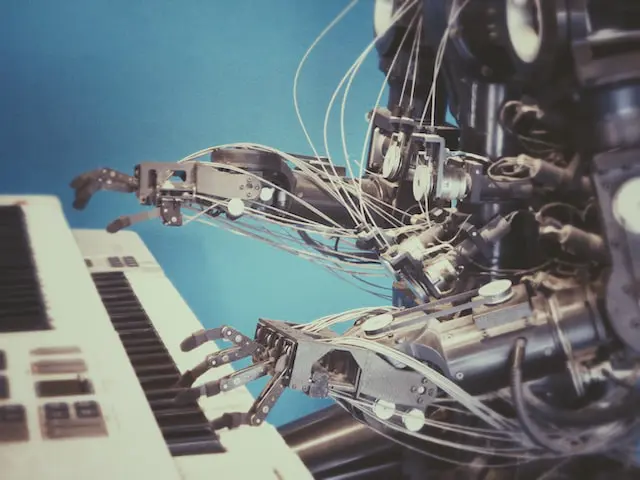Machine learning is a branch of artificial intelligence that allows machines to learn and improve from experience without being explicitly programmed. Machine learning is being used in a variety of fields, and music creation is no exception. In this article, we will discuss how machine learning is changing the way we create music, and the implications it has for the music industry.
Machine Learning in Music Creation
Machine learning is being used in music creation in a number of ways, from composition to production to recommendation systems. One of the most exciting applications of machine learning in music is in the area of music composition.
Machine learning algorithms can analyze existing music and learn the patterns and structures that make it sound good. Using this knowledge, they can then generate new music that is stylistically similar to the original.
One example of this is Amper Music, an AI-powered music composition tool that allows users to create original music in a matter of minutes. Users can select a genre, mood, and tempo, and the software will generate a completely original piece of music that fits those parameters.
Machine learning is also being used in music production to enhance the quality of recordings. Algorithms can analyze audio recordings and identify areas where improvements can be made, such as noise reduction or EQ adjustments.
This allows for more efficient and accurate post-production work and can help to improve the overall quality of a recording.
Music recommendation systems are another area where machine learning is being applied in music creation. These systems use algorithms to analyze user listening patterns and recommend new music that they are likely to enjoy.
This allows music streaming services like Spotify and Apple Music to create personalized playlists for each user, making it easier for them to discover new music that they might not have found otherwise.
Benefits of Using Machine Learning in Music Creation
One of the biggest benefits of using machine learning in music creation is the ability to save time and increase efficiency. With AI-powered composition tools like Amper Music, musicians can create original music in a matter of minutes, rather than spending hours or even days writing and arranging music. This allows for more creativity and experimentation, as musicians can easily try out different ideas without the fear of wasting too much time.
Another benefit of using machine learning in music creation is the ability to create more personalized experiences for listeners.
Music recommendation systems can help users discover new music that they are likely to enjoy, and the use of AI in production can help to create recordings that sound better and are more enjoyable to listen to.
Challenges and Limitations
While there are many benefits to using machine learning in music creation, there are also challenges and limitations that need to be considered.
One of the biggest challenges is the ethical concerns surrounding intellectual property rights and creative control.
If a machine learning algorithm generates a piece of music, who owns the rights to that music? Should it be the person who created the algorithm, or the person who inputted the parameters that generated the music?
Another challenge is the limitations of current machine learning technology.
While AI can be trained to create music that is stylistically similar to existing music, it is still limited by the data it is trained on.
This can lead to a lack of diversity in the music that is generated, as the algorithm may only be able to generate music that fits within certain parameters.
The Future of Machine Learning in Music
Despite these challenges, the future of machine learning in music looks bright. As technology continues to advance, we can expect to see more sophisticated algorithms that are capable of generating more diverse and creative music.
We can also expect to see more collaboration between humans and machines, as musicians and producers work alongside AI-powered tools to create music that is both original and commercially viable.
To conclude
Machine learning is changing the way we create music, and the implications it has for the music industry are significant.
From composition to production to recommendation systems, machine learning is being applied in a variety of ways to enhance the music creation process.
While there are challenges and limitations to consider, the benefits of using machine learning in music creation are numerous, including increased efficiency and personalized experiences for listeners.
As we look to the future, it is important to continue exploring the potential of machine learning in music and to address the ethical concerns that come with its use.
By doing so, we can ensure that this technology is used in a way that benefits both musicians and listeners, and that we continue to create innovative and compelling music that resonates with audiences around the world.
If you want to learn more about how AI and software are changing the way we listen, feel, create, and engage with music, make sure to check out the articles on softrevs.com


